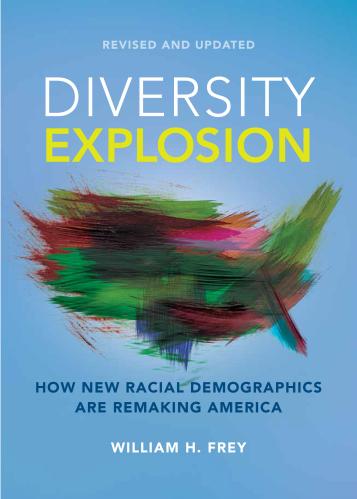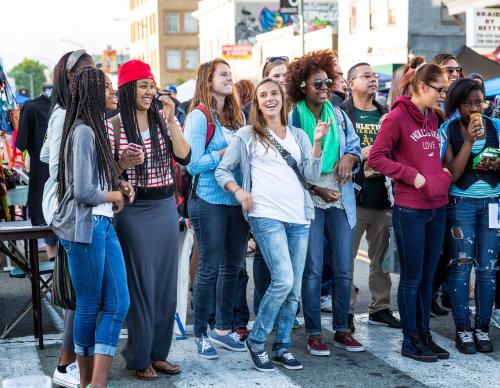This commentary was originally published in Fortune.
The U.S. decennial census is a hallowed institution that lies at the heart of our democracy. It is a giant civic engagement project that allows people to proclaim that they are residents of this great land and, by virtue of the Constitution, which mandates it, ensures that they will be fairly represented in Congress. People tend to have a good feeling about participating in it.
Yet the 2020 census may be different from all the rest. In light of the current administration’s significant pushback against immigrants, especially Muslims and other people of color, the census could become a divisive, politically charged exercise which, due to an omission of some members of these groups, would represent some classes of residents more than others and, in effect, undermine the very democracy that it was intended to uphold.
A huge step in that direction occurred earlier this week when Commerce Secretary Wilbur Ross who, ignoring appeals by scores of civil rights advocacy groups and a plurality of state attorneys general, determined that the 2020 census would query residents on whether or not they are legal citizens of the U.S. His ruling follows a controversial Trump Justice Department recommendation that this question be added to implement a Voting Rights Act provision which stipulates that citizens of different racial groups be considered when drawing congressional districts.
In fact, such an implementation has been adequate since 1965, when the Voting Rights Act was passed, without putting a citizenship question on the census because other government data sources, such as the American Community Survey, have been sufficient. The Trump Justice Department’s broader objective with this suggestion seems to be to further fan the flames of its signature immigrant deportation issue and scare off fearful immigrants and their families from completing the census—a fear that an in-house Census Bureau memorandum has already warned about.
The groups that would mostly be scared off by this are segments of the noncitizen Hispanic, Asian, and Muslim populations. According to the 2018 Current Population Survey, noncitizens (both legal and undocumented) comprise 30% of Hispanic adults and 32% of Asian adults—in contrast to just 2% for whites. While many Hispanic and Asian children were born in the U.S. and are therefore citizens, they may not be included in the census if their foreign-born noncitizen parents choose not to respond. Similarly, census responses of many mixed-status citizen/noncitizen households would also be limited. While the current fraught political environment would make it difficult to encourage these groups to fill out even a normal census questionnaire, the addition of a citizenship question will add mightily to that challenge.
The groups that would mostly be scared off by this are segments of the noncitizen Hispanic, Asian, and Muslim populations.
The negative impacts of selective under-enumeration are many. First and foremost is a skewed reapportionment of congressional seats. My analysis of recent American Community Survey data shows that if just 15% of the noncitizen population did not respond to the census, California and New York—two big immigrant states—would each lose an additional congressional seat (to the benefit of Colorado and Montana), with more apportionment shifts occurring at higher rates of nonresponse.
Just as significant are the impacts of congressional and state redistricting within states. Since the under-enumerated groups are more likely to live in urban areas, congressional and state legislature representation based on a flawed census would become more slanted toward rural and small-town areas. This can negatively affect legislation reflecting, for example, the interests of young families and children who are more racially diverse in their demographic make-up than other groups and are more prone to reside in urban parts of the country.
Moreover, the flow of hundreds of billions of dollars of government funding to states and local areas is heavily targeted to geographic areas and groups based on census results. A misallocation of these funds based on a faulty census would affect a wide range of programs, including those directed to housing, health, education, and community infrastructure.
Finally, it is important to recognize that the census, by virtue of its attempt to count all of the population, is the backbone of thousands of government and private sector surveys that guide decision-making over the course of the entire next decade. The likely under-enumeration of our growing and future-oriented populations—racial minorities, youth, and urban communities—will only constrain needed investments, both private and public, in those groups and places.
It would be a disgrace to see the 2020 census used as a political football, with tweets from the White House to rile up some voting blocs while frightening other groups into not participating.
Beyond the issue of unequal representation, which cuts to the heart of our democracy, is the specter of turning the decennial census into a political event, replete with rallies and social media blitzes about who should not be counted or thought of as real Americans. It would be a disgrace to see the 2020 census used as a political football, with tweets from the White House to rile up some voting blocs while frightening other groups into not participating. The Commerce Department’s decision to add a question on a resident’s citizenship status is a disappointing step down that road. There is still time to turn it back. Let’s hope the courts or Congress can accomplish this.
The Brookings Institution is committed to quality, independence, and impact.
We are supported by a diverse array of funders. In line with our values and policies, each Brookings publication represents the sole views of its author(s).








Commentary
These are the groups most likely to stop participating in the US census
April 6, 2018